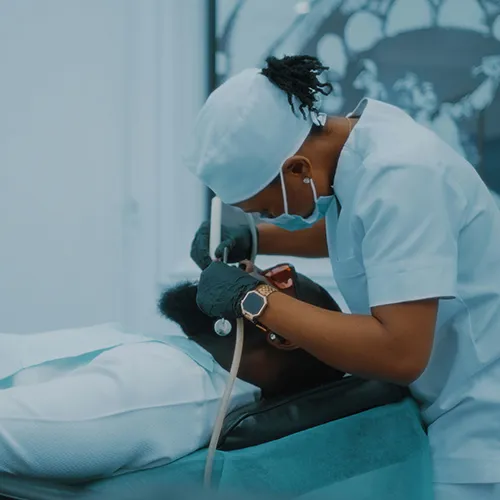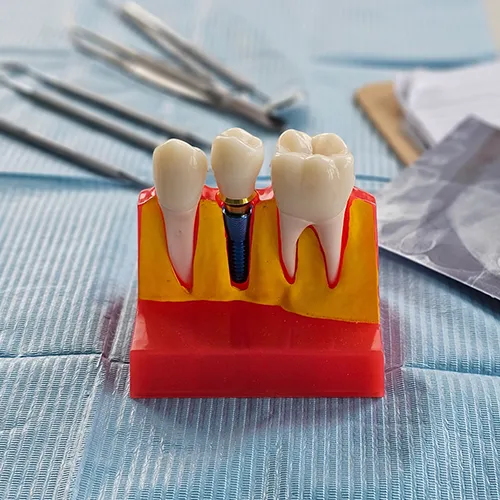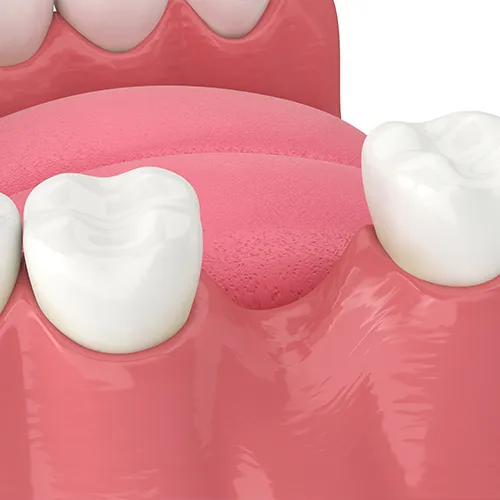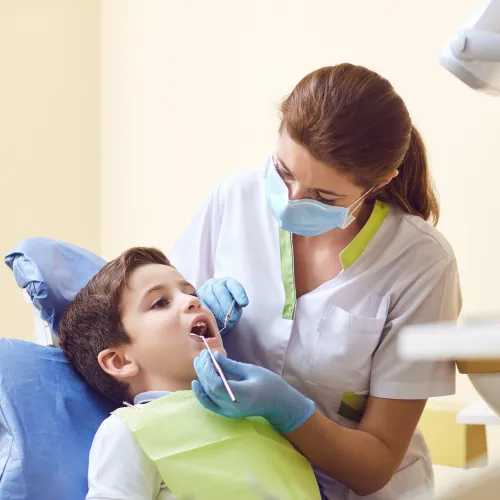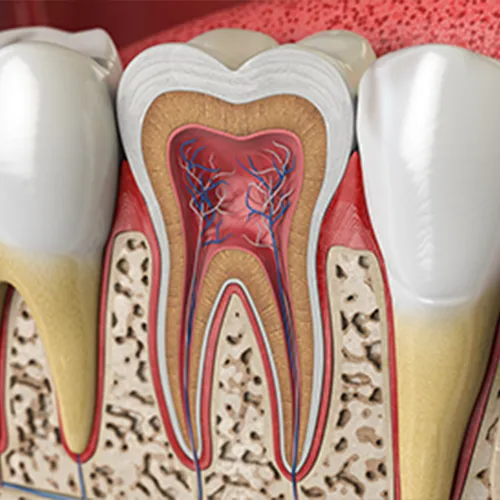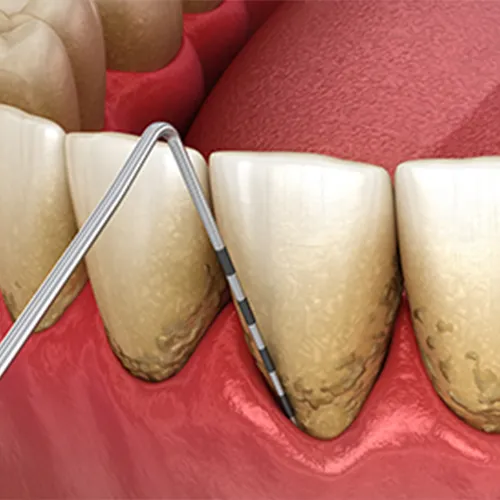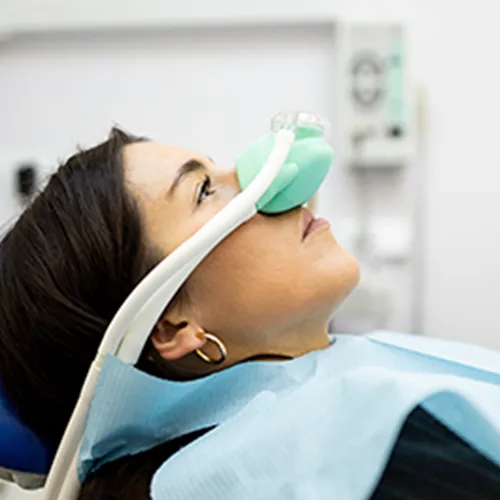Specialty Dentistry
Why Your Jaw Might Be Clicking: Common Causes of TMJ
That strange pop when you yawn. The stiffness in your jaw when you chew. Or maybe it's a full-blown ache that won’t go away. If any of this sounds familiar, you might be dealing with TMJ problems. Temporomandibular Joint Disorder, or TMJ, is a condition that affects the hinge connecting your jawbone to your skull. When something goes wrong with this joint, it can lead to pain, discomfort, and a surprising list of side effects.
TMJ isn’t always easy to pinpoint, and the causes can be as unique as the people who experience them. That’s why understanding the root of the issue is often the first step to finding relief. Let’s take a closer look at what can lead to TMJ, how it develops, and what you can do if your jaw isn’t cooperating the way it should.
What causes TMJ in the first place?
TMJ isn’t one-size-fits-all. It can be triggered by different things, and sometimes there’s more than one factor at play. Here are the most common culprits:
1. Teeth grinding and clenching (bruxism):
One of the most well-known causes of TMJ is something many people do without even realizing it. If you grind your teeth at night or clench your jaw during the day, that constant pressure on the joint can lead to inflammation, soreness, and damage over time. The joint is only designed to handle so much tension, and chronic clenching eventually wears it down.
2. Misaligned bite or jaw structure:
When your teeth or jaw are not in proper alignment, it forces the temporomandibular joint to work harder. Over time, this can lead to uneven stress on the muscles and joints. Think of it like a car with misaligned wheels — everything still moves, but there’s unnecessary strain that eventually causes problems.
3. Injury to the jaw:
A hit to the face, a fall, or even whiplash from a car accident can impact the jaw joint. These types of trauma can throw off the alignment of the jaw or cause damage to the muscles and ligaments surrounding it. Sometimes, TMJ symptoms show up weeks or months after the injury.
4. Arthritis in the jaw joint:
TMJ can also develop as part of a larger issue, like arthritis. Osteoarthritis or rheumatoid arthritis can break down the cartilage in the jaw, leading to stiffness, limited movement, and pain. For some people, TMJ is one of the first signs of arthritis they notice.
5. Stress-related habits:
Stress affects us in all sorts of ways, and for many people, it shows up physically. Clenching your jaw, grinding your teeth, biting your nails, or constantly chewing gum can all put extra pressure on your jaw over time. Even poor posture — like hunching over a laptop — can indirectly affect your jaw alignment.
6. Jaw overuse:
You might not think twice about chewing gum all day or singing at the top of your lungs, but repeated jaw movement can lead to overuse. Just like any joint, your jaw can become inflamed or irritated when used too much without rest.
7. Genetics and joint structure:
Some people are more prone to TMJ simply because of the way their joints or connective tissues are built. If you have a family history of TMJ or hypermobility in your joints, your jaw might be more likely to develop issues even without any major trauma or grinding.
Can TMJ happen without any obvious cause?
Yes, and this is part of what makes TMJ so frustrating for many people. Sometimes, it seems to come out of nowhere. You might wake up one day with a sore jaw, clicking sounds, or headaches without any clear injury or reason. In these cases, TMJ could be the result of small habits that built up over time or an underlying issue you didn’t know you had.
This doesn’t mean the pain isn’t real or that you have to live with it. It just means the diagnosis might take a bit of detective work, and treatment will need to be customized to your specific symptoms and lifestyle.
What are the symptoms that something might be wrong with my jaw?
Some signs are more obvious, like jaw pain or clicking. Others might surprise you. TMJ symptoms can show up in your head, ears, or neck, and many people don’t connect them to their jaw at all. Here are some symptoms that might point to TMJ:
- Pain or tenderness in the jaw, especially when chewing or talking
- Clicking, popping, or grinding sounds when you move your jaw
- Locking of the jaw or trouble opening and closing your mouth
- Headaches or migraines
- Ear pain, ringing in the ears, or a feeling of fullness
- Pain that spreads to the neck or shoulders
- Changes in your bite or the way your teeth fit together
If you’re dealing with any combination of these, it’s worth checking in with your dentist to see if TMJ might be the cause.
How is TMJ diagnosed?
There’s no single test for TMJ, which is why your dentist will usually start by asking detailed questions about your symptoms and medical history. They may also:
- Examine your jaw’s range of motion
- Listen for clicking or popping
- Check for areas of pain or muscle tightness
- Use imaging tools like X-rays or CT scans if needed
Sometimes, you may be referred to a specialist if your case is complex or involves other underlying health issues.
What lifestyle habits can help reduce TMJ symptoms?
Managing TMJ often starts with small changes. These adjustments might not fix everything overnight, but they can take pressure off your jaw and give it a chance to heal:
- Avoid chewing gum and tough or chewy foods
- Use a cold or warm compress to ease discomfort
- Practice stress-reducing activities like yoga or deep breathing
- Be mindful of your posture, especially when working at a desk
- Wear a custom night guard if you grind your teeth
- Stick to soft foods during flare-ups
- Avoid extreme jaw movements, like wide yawning or singing loudly
When should I see a dentist about TMJ?
TMJ can be tricky because some discomfort might come and go. But if you notice persistent pain, trouble chewing, or a change in how your jaw moves, it’s time to make an appointment.
Your dentist can help identify the cause, rule out more serious conditions, and recommend the best treatment plan for your situation. Don’t wait until the pain becomes unmanageable — early intervention can make a big difference.
Get relief for your jaw pain today
TMJ can make everyday activities like eating and talking uncomfortable. But you don’t have to keep pushing through the pain. At Complete Health Dentistry, we offer personalized solutions to help you feel like yourself again. Whether it’s a custom night guard, therapy, or lifestyle guidance, we’ll find a treatment plan that works for you.
Schedule your appointment today and take the first step toward a pain-free jaw.



